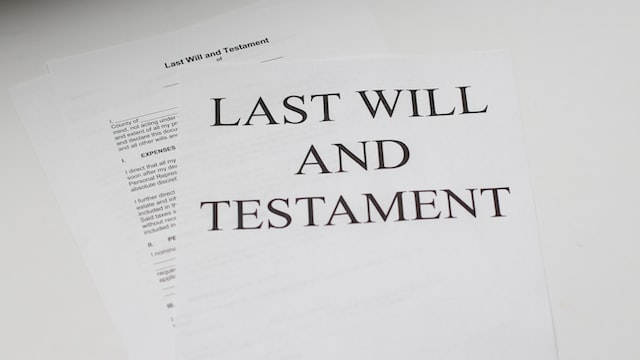Losing a loved one is probably one of the most stressful events one will ever go through in life. It will leave you feeling distraught and devastated, so sorting out their finances is the last thing you’d be concerned about. It could be challenging to know where to begin, especially when there’s a will involved.
What is a will?
A will is a legally enforceable document that enables people to name an executor (or executors) to handle estate-related affairs and carry out their wishes when they pass. Beneficiaries or those individuals to whom the deceased loved one (decedent or testator) decided to give gifts to are also named in a will.
Estate disposition instructions may also be included in a will, and may include every item the deceased loved one owned, including cash, real estate, assets, and other items.
In Australia, it must be noted that each state or territory has its own laws that apply to wills and family inheritance matters. Therefore, it’s crucial to familiarise yourself with these depending on where the estate is located. Better yet, get the advice of a lawyer or solicitor whose expertise is in wills and family law.
Whether you’ve been appointed as the executor of your loved one’s estate or are a beneficiary or both, here are some key points to consider in financial management when a loved one dies.
1. The will and insurance documents
Finding the will, if one has been ascertained to exist, is one of your most crucial jobs because it provides the decedent’s last directives. If the deceased made funeral pre-arrangements, had funeral insurance, or had a pre-paid funeral plan in place, you should also check for those things.
2. Allowances and government support
Losing a loved one can be financially challenging, particularly if the deceased had dependants (e.g., a spouse and minor children). As the executor, administrator, or next of kin, you need to check whether the dependants are eligible for any financial benefits for their living expenses, as well as sums to cover the funeral costs and estate administration expenses.
3. Debts, bills, estate liabilities
Consider all debts and liabilities and estate administration costs to have a thorough knowledge of any amounts owed. Until it is known whether the estate is solvent or insolvent, postpone making any payments.
If the estate is financially stable, work on making payments and keep track of any costs associated with estate administration that may be reimbursed whenever the estate funds are available. If the estate is insolvent, obtain legal counsel and familiarise yourself with state or territory laws on the payment of estate debts.
4. Inventory of assets
Keep an inventory of all the items that comprise the estate, together with their values. Maintain an updated record of the deceased person’s assets and liabilities to calculate how much of the estate will be allocated to the beneficiaries.
You also need to file a final tax return and get ready to apply for letters of administration (if there is no will) or grant of probate (if there is a will).
Other financial matters
Aside from the aforementioned financial concerns, there are other items that also need to be attended to, such as superannuation and bank-related matters.
Moving on with your life can be difficult with the passing of someone very close to you, and navigating finances can also prove challenging, especially when there’s a will.
Good thing you can get sound legal advice from lawyers who are well-versed with wills, trusts and family laws, and who can help you deal with estate-related concerns.
If this article has inspired you to think about your own unique situation and, more importantly, what you and your family are going through right now, please contact your advice professional.
(Feedsy Exclusive)





